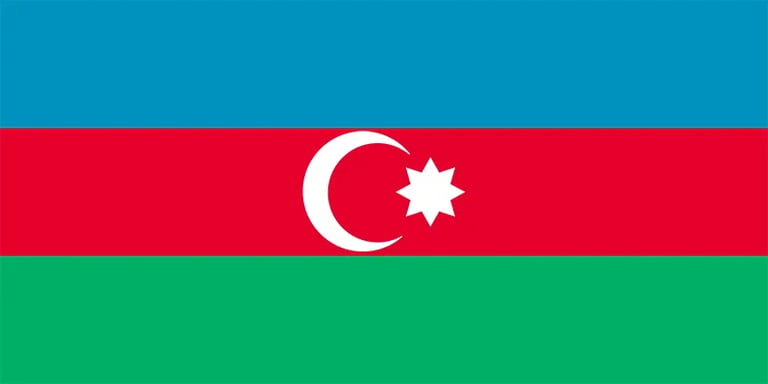Azerbaijan
From Wikipedia


The Republic of Azerbaijan, is a transcontinental country located at the boundary of Eastern Europe and West Asia. It is a part of the South Caucasus region and is bounded by the Caspian Sea to the east, Russia's republic of Dagestan to the north, Georgia to the northwest, Armenia and Turkey to the west, and Iran to the south. Baku is the capital and largest city.
The territory of what is now Azerbaijan was first ruled by Caucasian Albania and later various Persian empires. Until the 19th century, it remained part of Qajar Iran, but the Russo-Persian wars of 1804–1813 and 1826–1828 forced the Qajar Empire to cede its Caucasian territories to the Russian Empire; the treaties of Gulistan in 1813 and Turkmenchay in 1828 defined the border between Russia and Iran.[10][11] The region north of the Aras was part of Iran until it was conquered by Russia in the 19th century, where it was administered as part of the Caucasus Viceroyalty.
By the late 19th century, an Azerbaijani national identity emerged when the Azerbaijan Democratic Republic proclaimed its independence from the Transcaucasian Democratic Federative Republic in 1918, a year after the Russian Empire collapsed, and became the first secular democratic Muslim-majority state. In 1920, the country was conquered and incorporated into the Soviet Union as the Azerbaijan SSR. The modern Republic of Azerbaijan proclaimed its independence on 30 August 1991, shortly before the dissolution of the Soviet Union. In September 1991, the ethnic Armenian majority of the Nagorno-Karabakh region formed the self-proclaimed Republic of Artsakh, which became de facto independent with the end of the First Nagorno-Karabakh War in 1994, although the region and seven surrounding districts remained internationally recognized as part of Azerbaijan. Following the Second Nagorno-Karabakh War in 2020, the seven districts and parts of Nagorno-Karabakh were returned to Azerbaijani control. An Azerbaijani offensive in 2023 ended the Republic of Artsakh and resulted in the flight of Nagorno-Karabakh Armenians.
Azerbaijan is a unitary semi-presidential republic. It is one of six independent Turkic states and an active member of the Organization of Turkic States and the TÜRKSOY community. Azerbaijan has diplomatic relations with 182 countries and holds membership in 38 international organizations, including the United Nations, the Council of Europe, the Non-Aligned Movement, the OSCE, and the NATO PfP program. It is one of the founding members of GUAM, the Commonwealth of Independent States, and the OPCW. Azerbaijan is also an observer state of the World Trade Organization.
The vast majority of the country's population (97%) is nominally Muslim, but the Constitution of Azerbaijan does not declare an official religion, and all major political forces in the country are secular. Azerbaijan is a developing country and ranks 91st on the Human Development Index. The ruling New Azerbaijan Party, in power since 1993, has been accused of authoritarianism under president Heydar Aliyev and his son Ilham Aliyev, and deteriorating the country's human rights record, including increasing restrictions on civil liberties, particularly on press freedom and political repression.
Nassouh GSPI
Assessing global strength through various metrics.
contact us
gspi@nassouh.com
© 2025. Nassouh, All rights reserved.
